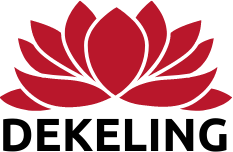To our mediation community, my friends, elders and companions on the path—
You may have seen the recent onslaught of social media reaction videos and ‘news stories’ about the Dalai Lama, reporting that he apparently requested a child to ‘suck his tongue’ after kissing the child on the cheek and then lips, after the child had, much to the chagrin of his very watchful mother sitting nearby, boldly asked the Dalai Lama if he could have a hug, in front of a public audience at a graduation ceremony captured on recorded and broadcasted video.
Two months after it was recorded, an edited version of the video re-surfaced and there was an outcry of judgement and a river of instant accusations of pedophiliac behavior, based on the “evidence” of a heavily edited video a matter of seconds long. I waited for a single person—including those from other oppressed and flash-judged communities—to say, “Hey let’s check in with Tibetans to see if we are missing something.” I watched about 100 brief reaction videos, and found exactly one person who identified herself as completely culturally ignorant in the case of Tibetan culture, and who was asking herself in a Tik Tok video, “Were we missing something?”
We were. We were missing “Che Le Sa.” (“Eat my tongue”, in Tibetan)
In Tibetan culture, particularly the high and rural region of Amdo, where the Dalai Lama is from, elders easily might kiss a child directly, and even give a child a bite of food or a sweet directly from their own mouth. Then, since they have given all the affection they can, they say, “Che le sa!”
It means something like, “You got the kiss, you got the candy (or food) the only thing that’s left is my tongue…go ahead, eat that, too.” Tibetan children know “Che le sa.” It is a joyful and playful expression of the powerful love of Tibetan community elders. In Amdo, where food-scarcity, hardship, and even death from poverty was not uncommon, elders express a willingness to offer affection, food—even their very body and life for the sake of their children and grand-children in the tender expression of “Che le sa!”
So why did the Dalai Lama say, “Suck my tongue”—three very loaded words in English, to a global audience that included English speakers? For the same reason that anyone who has lived in a culture where their fluency was not proficient, **like I did when I asked for—ugh, I can’t bear to tell you—** in front of a room full of people at a dinner party when I lived in Nepal. It was an accident. The difference was, my Nepali friends jumped to a different kind of immediate conclusion: that I was making an obscene but innocent language gaff. Instead of hatred, I was met with laughter, blushes, jokes and correction… not misplaced rage and blame borne of ignorance.
I don’t feel surprised that a nation as traumatized as our own would react through the lens of our own sexually repressed, racially charged, and horrifically violent experiences. We are all but wired to do that by events of recent years. It pains me that we still so eagerly jump to hatred of a person of color, but I understand that this will take time to heal.
Many people said, “Well, he apologized. So he did it.” The Dalai Lama’s office did issue an apology for any harm that was caused from his words. Any experienced Buddhist could tell you that an apology for harm, even when one was not necessarily responsible, is a matter of dignity and kindness in many cultures, and is encouraged in Buddhist practice. I didn’t participate in World War Two, but I am willing to say, “I am so very sorry,” to all those harmed in the war, and to the generations who come after, still feeling the impact. I am willing to put it in writing, as he did.
There is much that could be said about this, but more is not necessarily better. The events themselves have been potent reminders about my responsibility for the impacts of my own reactivity and the harm that it can cause. These events have caused me to look again, and with great regret, about how easily I might inflict pain on others as a result of my own confusion. I see how even my best intentions don’t necessarily make my actions noble or even innocuous. All of these observations kindle my determination to continue to work towards clarity, kindness and unconditional love.
I am not here to change anyone’s mind except my own. But to those in our meditation community who have asked for guidance in this matter, I remind you: You never have the whole story. There is no such thing. It is not possible to see the beginning and end of any event. What you see and even experience is a result of all you think, feel, and believe, true or not. What you know for sure is simply one of many possible perspectives. Be careful—our confusion is contagious. The main leverage point for radical change is your own mind, heart and actions.
In humility and gratitude, with wishes that all beings be free,
Lama Lekshe (Julia) King Tamang
